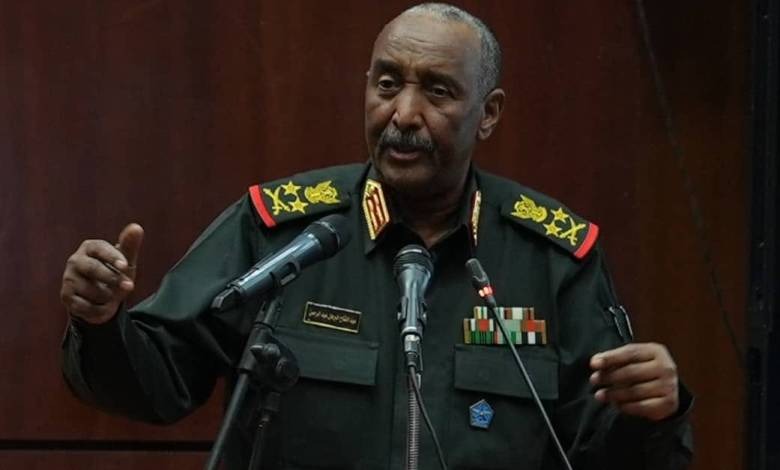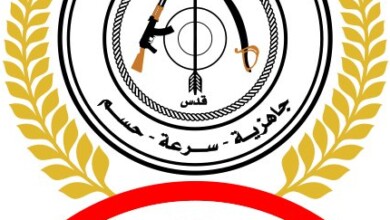Does the ICJ’s decision pave the way for the prosecution of SAF
for violations against civilians?

Experts believe that the recent International Court of Justice ruling, although not directly related to holding individuals accountable, carries profound political and legal implications that could reshape the landscape of legitimacy in Sudan. The decision, which dismissed the Sudanese Army’s lawsuit against the United Arab Emirates (UAE), not only amounts to a legal rejection but also deals a symbolic blow to the Port Sudan Authority and the Sudanese Army Commander-in-chief, Abdel Fattah Al-Burhan, by implicitly questioning their representation of the Sudanese State.
Experts assert that this development strengthens the international climate that could -very well- open the door to broader accountability for the Sudanese Army when it comes to the grave violations committed against civilians. It also refocuses attention on the record of war crimes in Darfur and other conflict zones, foreshadowing the possibility of similar decisions by international judicial bodies that would hold the military establishment accountable for its legal and historical responsibilities.
Ahmed Tugud Lisan, Secretary-General of the Sudanese Justice and Equality Movement (JEM) and member of the Preparatory Committee of the Sudan Founding Alliance (Tasees), stated that the International Court of Justice differs from the International Criminal Court (ICC). The (ICC) is the body that holds accountable crimes and violations committed during conflicts, not the (ICJ).
He added to (Erem News) that Sudan wasn’t a member of the (ICC), but a portion —the portion pertaining to the situation in Darfur— was referred to the Court. Therefore, the crimes within the court’s jurisdiction with respect to Sudan are limited to those related to Darfur. The Court cannot consider other areas unless the situation in Sudan as a whole is referred to the (ICC), which is a lengthy procedure that requires the approval of the UN Security Council, or if the portion pertaining to Darfur is extended to include the entirety of Sudanese territory.
Regarding the decision issued by the International Court of Justice, Tugud explained that this Court has jurisdiction over cases between States, however, it doesn’t impose sanctions on them, and doesn’t have the right to hold individuals accountable. The Secretary-General of (JEM) raised a question regarding the legitimacy of the lawsuit filed by the Sudanese Army, asking: Does this lawsuit represent the Sudanese government? Considering this a controversial issue that will remain a subject of debate within the international community in general, the African Union, and the European Union, with the exception of a few countries with strategic interests in Sudan.
Ahmed Tugud went on to emphasize that the world currently doesn’t acknowledges the existence of a legitimate government in Sudan, except for a few countries that deal with the “de facto government.” He stressed that neither the Sudanese Army nor Abdel Fattah Al-Burhan represent public opinion, the same holds true for the military establishment, as there is no internationally recognized entity as the legitimate representative of the Sudanese State.
Commenting on the decision, writer and political analyst Al-Tayeb Al-Zein considered the International Court of Justice’s decision a major disappointment for Al-Burhan. He explained that this decision, which ruled the allegations invalid, nullifies their attempts to politicize the case and divert attention from the true responsibility for the crisis facing Sudan. He sent a clear message that international justice doesn’t allow the “external enemy” to be used as a pretext to justify crimes committed domestically against the Sudanese people.
Al-Zein added to (Erem News) that the decision blocked the path for Al-Burhan and his supporters, who had attempted to create an external enemy to divert attention from the crimes committed against the country and its citizens.
This decision will also strengthen the position of the international community and weaken attempts to justify actions by creating an external enemy of their own making. The decision will inevitably lead to strong domestic reactions against those responsible for the crisis and will contribute to accelerating the downfall of the “Obscurantist Movement” that sparked the war in Sudan.
The writer and political analyst explained that this decision will have a significant impact on the level of international organizations, especially after the International Court of Justice issued a ruling invalidating the accusations against the (UAE). This will help expose the propaganda that the Sudanese Army sought to promote before the international community.
Al-Zein concluded his statements by emphasizing that this decision signifies that Al-Burhan is directly responsible for the tragedy facing the Sudanese people, he held the international community accountable for supporting efforts aiming to resolve the crisis and achieve stability. Furthermore, he went on to reiterate the importance of respecting International Law and the will of the Sudanese people, as they aspire to attain peace and stability.
For his part, Shihab Ibrahim Al-Tayeb, a member of the General Secretariat of the Civil Democratic Alliance of the Revolutionary Forces (Sumoud), shared that the Sudanese Army leadership along with its supporters have engaged in a fruitless endeavor, neglecting what they ough to be concerned with in regards to stopping the war and halting the consequent deterioration of the conditions of the Sudanese people. They are attempting to portray this war as one between countries, when in essence its an internal one. Shihab believed this attempt aims to relieve the Sudanese Army’s embarrassment and conceal the fact that its waging a proxy war on behalf of the Sudanese Islamic Movement, and perhaps to cover up the practices of the Islamists involved in this war, as they are rather adapt at committing widespread and serious violations.
The member of the General Secretariat of (Sumoud) confirmed to (Erem News) that the decision will open the door for international legal institutions to prosecute war crimes and violations committed against Sudanese people based on ethnicity or geographic affiliation. This is the same methodology used by the Sudanese Army in South Sudan prior to its independence (secession) and in Darfur after (2003).
He explained that international courts are not suitable for the Sudanese Army or the Islamists in Sudan, because the situation is rather reversed: former leaders —such as Omar Al-Bashir, his Defense Minister Abdel Rahim Mohamed Hussein, and Ahmed Haroun— are already wanted by international justice on charges related to crimes against humanity and war crimes in Darfur, South Kordofan, and the Blue Nile states.
Al-Tayeb went on to add that the crimes committed after (2019), including the suppression of the sit-in in front of the Military’s General Command Headquarters, the killing of protesters after the (October 25th, 2021) Coup, in addition to other violations will pave the way for the Sudanese Army along with those who committed such crimes to be held accountable before international justice, which represents the exact opposite result of what they sought to achieve by resorting to international courts.





